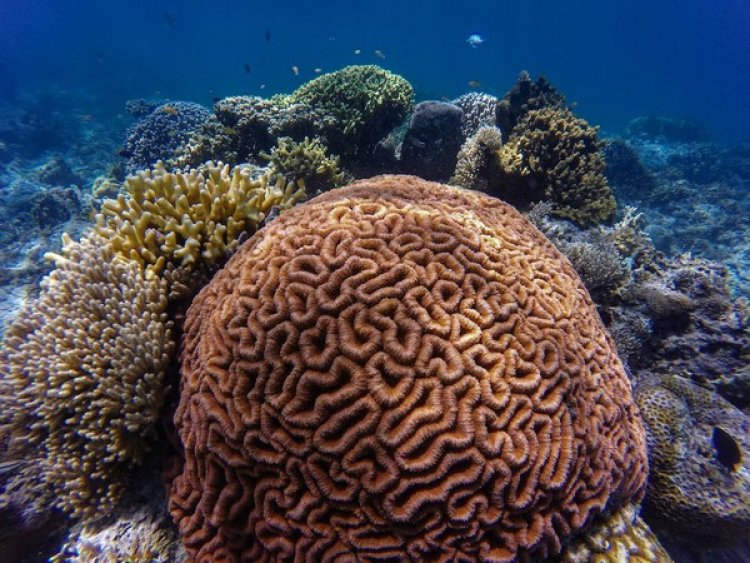Heat-tolerant coral may trade fast development for resilience: Study

California, US: Algae living within coral soft tissue provide much of the energy required by their hosts, and some symbiotic algae enable corals to withstand warmer water better than others.
In a recent study led by the University of Hawaii at Manoa, researchers discovered a tradeoff for corals dominated by thermally sensitive algae: they grow faster in cooler water.
"As the ocean continues to warm, understanding how symbionts and environmental factors affect coral growth and health will help predict reef futures and inform conservation interventions where coral stocks are selected for specific traits or symbionts," said Shayle Matsuda, a doctoral student at the Hawaii Institute of Marine Biology in the UH Manoa School of Ocean and Earth Science and Technology at the time of the research.
The study was co-led by Matsuda, now a postdoctoral fellow at the Shedd Aquarium, and Mariah Opalek, who conducted the experiment for her undergraduate thesis at UH Manoa. The research team investigated whether rice corals hosting symbiotic algae that can tolerate warmer water may grow more slowly, which could impact survivorship and competition for space on the reef, compared to coral hosting symbionts that are more susceptible to bleaching when ocean waters warm.
Over a two-month study period, the researchers measured the growth of rice corals dominated by heat-tolerant or heat-sensitive symbiotic algae. Additionally, they tested growth across decreasing light levels to see if the tradeoff between growth and tolerance to warm water would be affected by light, which is a major driver of the distribution of these symbionts in Kaneohe Bay, Hawaii.
"This research shows us the complexity of coral growth on a reef," said Opalek, who is now a grant support assistant at Kauai Community. "A coral's competitive advantage could be lost in a matter of a few degrees depending on what type of symbiont they associate with."
During the first month, when water temperatures were warmer, the symbiont present did not affect growth. However, over the cooler second month, corals with heat-sensitive algae grew up to 77 per cent faster than corals dominated by heat-tolerant algae, and this growth advantage increased in higher light treatments, which correlates to shallower depths on a reef.
"This means that the growth advantage associated with the thermally sensitive corals may only occur during a handful of the cooler months," said Matsuda. "As ocean warming continues, it is likely that the advantage of hosting thermally tolerant symbionts outweighs any growth advantage hosting the thermally sensitive species might."















































